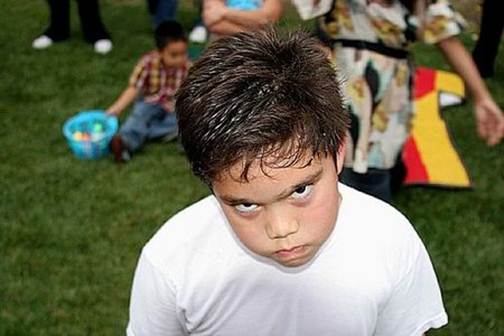Put an end to any sibling rivalry by understanding the causes, and the
approaches that work
It’s sad but there’s often some rivalry between siblings or
peers [in case of a single child]. It sometimes even takes on a more intense
form-jealousy. Such feelings are harmful as they make children behave in ways
that may hurt others [or themselves] – at times in a serious manner. To help
children deal with these feelings, it is important to understand the issue in
depth.
Why do children feel jealous?

Why do children
feel jealous?
Immediately after birth, an infant is dependent on the
mother for all its needs – food, shelter and protection by means of cuddling,
carrying and patting. This close bonding between the mother and child serves an
important role for the child. It helps the child develop the capacity to trust.
It’s the basis of child’s attachment to the parents. If this bonding does not
happen well, feelings of insecurity creep in. This may lead the child to
becoming more clingy, attention-seeking or demanding. Behaviours like
obstinacy, tantrums or fussiness while eating evolve. The insecurity may also
lead to a low sense of self. Such children may feel that they do not have
enough. Or, they are possessive of what they have and connot share it. Both
these situations create a fertile ground for the development of feelings of
rivalry and jealousy as time goes by.
Do parents unknowingly contribute in generating
jealously in children?
The arrival of another baby in the house is often the
beginning for a child to get distressed. When another baby is expected, most
children are told that the new baby is for them to play with and care for. Once
the newborn is home, there’s a sudden change with the parents becoming
protective of the new born, often preventing the elder one from going near,
touching, hugging or kissing. They do so because they want to be careful. This
care, though important, often gets conveyed in the form of a scolding and
setting limits, which confuses the child. It also makes her feel vulnerable as
hitherto she has enjoyed undivided attention and pampering. The arrival of the
new child may not prove to be the best of news for this little friend of ours.

Do parents
unknowingly contribute in generating jealously in children?
Thus, unknowingly, parents do contribute tu the development
of jealousy among siblings. As children grow up, sooner or later some kind of
comparison sets in. if the older one is mischievous, then she is asked to
behave while the younger one gets concessions. To the older one, this is unfair
and discriminative; it raises the question in her mind – “do they love me
anymore?” or “because they have a new baby to play with, I am not loved
anymore, I am not needed anymore”; “all this is because of the young one – s/he
has taken my parents away from me”. Jealousy takes root when parents are unable
to involve the older child in managing the younger one and making the older
feel important while caring for the younger.
Younger siblings too, don’t always get it easy. They are
constantly required to measure up to the older sibling. If they don’t, parents
constantly compare saying, “why don’t you learn something from your
brother/sister”; “look at her, she is such a good girl, she listens to me. You
are a bad boy/girl”. Here, the judgments of being a good child is based on the
comparison with the sibling and hence the child is labeled as bad. It’s natural
then for younger ones to think: “It’s because of her that I get scolded. Why
should I become like her? Do you not love me the way I am?” Thoughts like these
start gaining a foothold in the child’s mind and create negativity that may go
unnoticed. Sometimes it gets noticed and reprimanded, which only worsens it.
Unknowingly parents, under the idea of motivating the child, create a rivalry
between the two. The one who is so-called ‘good’ gets a chance to tease the one
that is so-called ‘not good’.